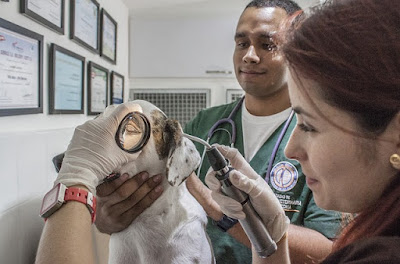What to Consider When Looking for a Dog
Owning a dog is not as simple as some people think. There are many things that owners need to consider before adopting or purchasing a dog. Once a dog becomes a part of the family, there is a huge commitment that cannot be ignored. In some ways, they need even more attention than a child, because they don’t gain independence at the level that humans do when they grow older and mature. Most people think of the basic needs and stop there without taking further consideration of how a dog might impact their lives. Here are a few important things to consider when looking for a dog.
Determine the right breed
Not all dogs are created equal. It is very important for potential dog owners to assess their specific, unique situations and determine the best breed to bring into their homes. Some dogs need ample space to move around without destroying things in the home. Others may need more exercise and access to the outdoors. There are even some dog breeds that are more trainable and independent than others. In essence, there are some dogs that are able to live great lives cooped up in apartments all day and others that absolutely need space. A dog owner’s living space may very well be vital to determining which dog breed is best for the situation.
Time commitment
Owning and caring for a dog is a huge time commitment. They need attention multiple times during the day, from feeding to exercising and cuddling to nurturing. People with time-consuming jobs and busy lives really should consider staying away from raising canines and other pets. At times, dogs may even pull owners away from their jobs, especially if they get sick and need medical attention during the day.
There are options for those who work long hours, but they are not exactly ideal. Often times, people will hire dog-sitters and dog walkers to help them with exercise and care for their pooches. Unfortunately, the relationship that the dog has is then made with the dog-sitter or walker.
Financial commitment
Caring for dogs costs money. They are an integral part of families, deserving all the care they can get. Owning dogs, as pets, are huge financial commitments, as they need to be fed, cared for in terms of their health, and entertained. All three of these elements cost money. When dogs age and their health declines, care can be extremely costly. Just like other members of the family, dogs also need annual health check-ups to make sure they are not developing diseases that may shorten their lives or make them uncomfortable.
Family health
Dogs are wonderful pets if no family members are allergic to them. If people in the house are allergic to dog dander, then the type of dog to welcome into the family will have to be hypoallergenic. There are a variety of dog breeds that fit the mold and are wonderful to have in an allergen-free home. In order for everyone in the family to enjoy their new pet, it is important to consider the wellbeing and health of all members.
Preparations
When people are ready to bring pets into their homes, there are some preliminary basics that need to get set up ahead of time. These preparations are important to consider so that the home and other family members are ready for the new addition. Potential owners need to make sure they are ready with a leash, collar, food and water bowls, crate (if necessary), sleeping area, and various toys for the dog to chew. If toys are not provided for dogs, they will find other things to chew on, such as shoes, couches, and curtains.
Primary Caregiver
Family lifestyle
Finding a veterinarian
Before bringing a dog into the family, it is important to shop around and find a reputable veterinarian. Visits to the vet are hard enough as it is for dogs. If they don’t have a vet who is caring, gentle, and knowledgeable, it can really be miserable for the dog. Although there are many options found on the Internet, the best way to find a reputable vet is to talk to current and former dog owners and get recommendations and referrals.
Dog-Proofing
Just as parents have to childproof their homes when their children become mobile infants, dog owners need to implement dog-proofing measures. In addition to hiding things the dog may chew up, owners need to make sure there is no access to toxic chemicals. Toxins can be found in plants, bags, and cleaners that the dog may come across as they explore around the house.
Dog’s age
Some people want to raise puppies and go through all the training themselves. Others are determined to rescue older dogs that have been through neglect and abuse. Before heading out to find a dog, a decision needs to be made whether the new addition to the family will be young or old. Dogs have different needs depending on their ages, so it is important for potential owners to consider the pros and cons of raising them from pups, as well as the advantages and disadvantages to rescuing an older canine.Adding a dog to the family is not a matter to be considered lightly. Dogs deserve to have the best owners who will dote on them and love them to death. The time, energy, and money it takes to raise and care for a dog are critical to consider before making a lifetime commitment to bringing a dog into the home. So, are you ready to have a dog?


